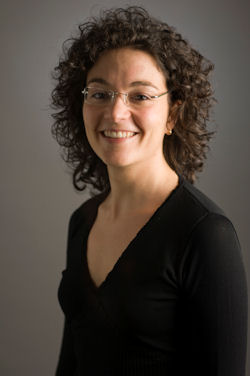ERC Starting Grant for better drug targeting
Anna Salvati, assistant professor at the Division of Pharmacokinetics, Toxicology and Targeting ( Groningen Research Institute of Pharmacy, Faculty of Mathematics and Natural Science) has received an ERC Starting Grant of EUR 1.5 million. She will study how nanoparticles, that can carry drugs, are taken up and processed by cells.

When drugs are administered by mouth or as an infusion, they will be transported throughout the body. This is one reason why so many drugs have side effects. Targeting drugs to the specific cells that need them would be a great improvement. Nanoparticles, like small lipid vesicles or polymer structures, could be designed to carry drugs to specific sites in the body. However, very little is known about the way these nanoparticles are handled by cells.
‘That is why translation of nanomedicines to the clinic remains a challenge’, says Salvati. She therefore wants to study the interaction between nanoparticles and cells: to find out how they are taken up and processed in the cell. ‘It is hard to design effective drug carriers when it is still not known how nanoparticles enter cells.’ Currently, most design is done using a trial-and-error approach to select the nanomedicines with higher efficacy, but this can often lead to failure.
Salvati will study how cells take up man-made nanoparticles, and how the cells decide where to send the internalized particles. ‘If they go straight to a lysosome, the waste disposal unit of the cell, the drug will probably be degraded.’ A better understanding of the way cells handle the nanoparticles will allow the design of effective carriers that get the drugs to where they are really needed.
The ERC research project, called NanoPaths, will run for five years. Anna Salvati joined the University of Groningen a year ago as a Rosalind Franklin Fellow. She explains some of her work in this video .
